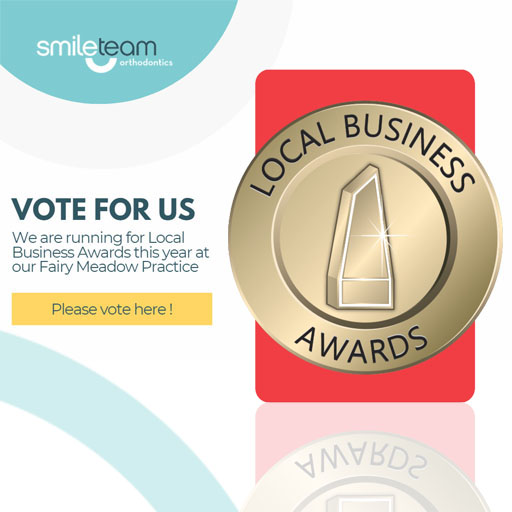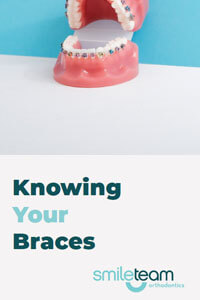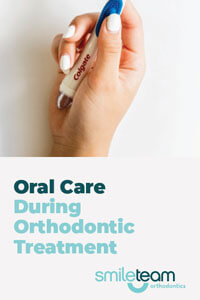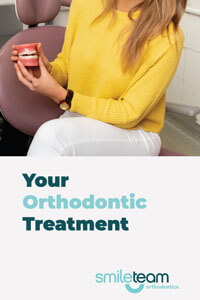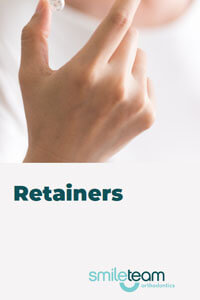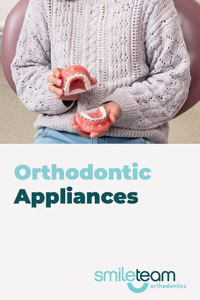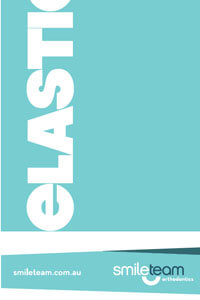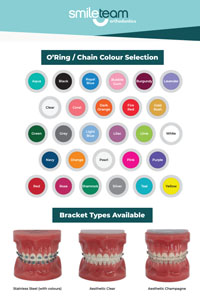Frequently asked questions about orthodontics
At Smile Team Orthodontics we understand you'll have questions about orthodontics. Here are a few of the frequently asked ones we get which can hopefully answer a few of yours.
Excellent orthodontic results can happen when dentist and client work together. Being co-operative and informed as a patient ensures that your orthodontic journey is a positive one, with the client, the orthodontist and staff all working together in a ‘team effort’. Our passion is your smile, and helping you achieve the results you want, which is why we have compiled our most frequently asked questions to help your journey run as smoothly as possible.
Orthodontics is a highly specialised form of dentistry focusing on the diagnosis, prevention and treatment of dental and facial abnormalities. An orthodontist is able to straighten teeth, correct malaligned jaw structure, and improve the function of your bite and smile.
An orthodontist is the most qualified person to diagnose, prevent and treat any problems you might have with the alignment of your teeth and jaws. An orthodontist is a dentist who has become a registered specialist in orthodontics (in much the same way that a cardiologist is a doctor who has become a specialist in heart problems). Orthodontists embark on two-to-three years of additional university training (after undergraduate dental study) and experience to become an orthodontic specialist. In Australia, an orthodontist must:
- Complete a Bachelor's degree in Dentistry (a 5-year, full time university course)
- Complete a Master's degree in Orthodontics (a 3-year full time university course)
- Be registered as a Specialist in Orthodontics by the Australian Health Practitioner Regulation Agency (AHPRA)
If you want to improve the look and feel of your smile, any age can be a great time to see the orthodontist. The Australian Society of Orthodontists and American Association of Orthodontists recommend children first visit an orthodontist around the age of 7; however, orthodontic treatment is not exclusive to children and teens. There is a wide variety of adult orthodontic options available, including Invisalign treatment, which is a groundbreaking and truly innovative method of straightening teeth using clear, removable, corrective aligners.
Orthodontic appliances are placed on your teeth to move them into a desired position; to improve the function of your bite and to improve the look of your smile. Appliances include:
- Clear aesthetic appliances
- Invisible appliances (Invisalign Removable Aligners)
- Lingual (inside) appliances
- Standard metal appliances
You may feel a small amount of discomfort for 2-to-3 days as your teeth, gums, cheeks and mouth get used to your new appliance. While you are getting used to your braces or aligners we advise a soft food diet. If your teeth are feeling sensitive and uncomfortable you could try Nurofen or Panadol.
We supply a wax type material that can be applied to the appliance to stop irritation and a Brace Relief Gel that can be dabbed onto any irritated soft tissue to bring some relief. The Brace relief gel has a mild anaesthetic property as well as an antiseptic component.
The amount of time spent in active treatment will vary depending on the individual patient, because each person responds differently to treatment. A standard treatment time can take about 18 – 24 months. This is only ever an estimate due to many factors such as human physiology, compliance and the complexity of the treatment required.
The retention phase of treatment can last indefinitely but will be supervised by us for up to 2 years.
In some cases it is advisable to remove teeth as part of the orthodontic procedure. While no-one likes to have teeth extracted, if it will enhance the stability, aesthetics and functional results of your orthodontic treatment, removal will be recommended as part of your treatment plan.
Your appliance can be damaged by eating hard foods, rough handling by a toothbrush, trauma to the mouth, and severe tooth grinding on the appliances. Broken appliances mean extra and longer appointments during school hours, longer time in braces, and possibly extra cost.
Functional appliances are fixed or removable plates and expanders that help guide the growth of a child's jaws and dental arches. These appliances are often a ‘Phase 1 Treatment’ that will then be followed by treatment with fixed braces or aligners.
You need to avoid very hard things such as Minties, sticky lollies and toffees, lollipops, hard muesli bars, etc. These types of foods can damage your appliances, prolong your treatment and cause extra visits for repairs. Even if you think you can eat these things without breaking off a bracket, they are most likely damaging the wire which then cannot move the teeth effectively.
Any food that is healthy for you, such as apples, carrots, etc. should stay in your diet but you should alter the way they are eaten – for example cutting them up into small, bite-size pieces. They must not be bitten into whole.
Food with stones, bones, or hard cores like peaches, chicken legs, and corn need to have the stone or bone or core removed so you do not accidentally bite into the hard part. Also, be careful with the crusts of toast or pizza - if they are hard, avoid them.
Appliances that are placed on the outside of your teeth should not affect your speech at all. Of course it will take a little time for the lips and cheeks to adjust and get used to having your appliance.
If you have Lingual braces – appliances that are placed on the inside of your teeth – your speech may be slightly affected while your tongue gets used to the appliances being there.
Yes! In fact, it is even more important that patients receiving orthodontic treatment visit their dentist more regularly - we recommend every 6 months. Your dentist is an important part of the team looking after your dental health and will work closely with your orthodontist to make sure your teeth stay clean and healthy while wearing braces.
Playing an instrument or singing may require some adjustment when you first get your appliances, but wearing orthodontic appliances will not stop you from participating in any school activities or hobbies.
We recommend you wear a mouthguard for all contact sports, including during training. We can provide our clients who have orthodontic appliances or aligners with a mouthguard available at our practice as part of their treatment to ensure their teeth are protected during such activities.
- ALWAYS remember to brush your teeth after every meal and floss at least once a day.
- Make sure to use a recommended toothpaste, if you aren’t sure, ask your Orthodontist or family dentist. This will help prevent cavities!
- When you take out your retainer to eat, make sure you brush your teeth, floss, and remember to keep it safe in its container so that it does not get lost or broken.
- Keep your retainer clean by brushing it gently with a toothbrush and toothpaste. You may also soak it in denture cleaner as instructed by your orthodontist. Do not put your retainer in boiling water or in the dishwasher.
- During your treatment, try to avoid foods with a lot of sugar as it increases the amount of bacteria that grows in your mouth, causing more plaque and possibly cavities.
- Avoid sticky, chewy and hard foods (caramels/toffees, chewing gum, gummi bears, boiled sweets, nuts, ice cubes etc) or any foods that could possibly get caught in your appliances (corn on the cob, crusty bread rolls, popcorn, ribs etc.). It can also help to cut your food up into smaller, easier to eat, pieces.
- Avoid fizzy soft drinks that contain sugar and acid.
- Be sure to schedule routine check-ups with your family dentist. We recommend you continue to visit the dentist every 4-to-6 months to maintain clean and healthy teeth and gums during your orthodontic treatment.
Simply call our nearest office to you – Shellharbour, Fairy Meadow or the Southern Highlands! One of our friendly Customer Service staff will be happy to schedule your next appointment at your convenience. If you are a new patient or have been referred to our office, please let us know and we will provide you with all of the information you need.
Just call us on (02) 4220 5300 or arrange your assessment here.
Client resources
Excellent orthodontic results can happen when dentist and client work together. Being co-operative and informed as a patient ensures that your orthodontic journey is a positive one, with the client, the orthodontist and staff all working together in a ‘team effort’. Our passion is you, and helping you achieve the results you want, which is why we have compiled our most frequently asked questions to help your journey run as smoothly as possible.
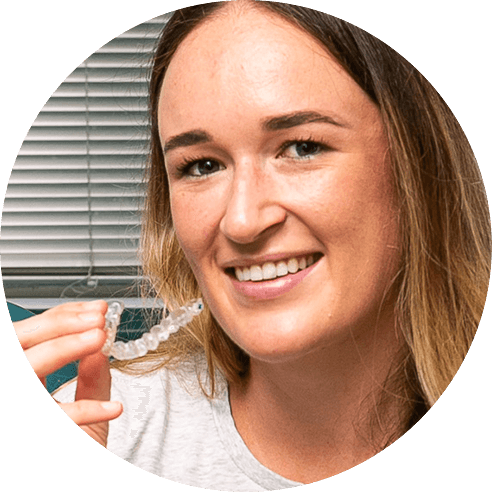
Book your assessment
Please complete the booking form below and we will be in touch to arrange your assessment.
